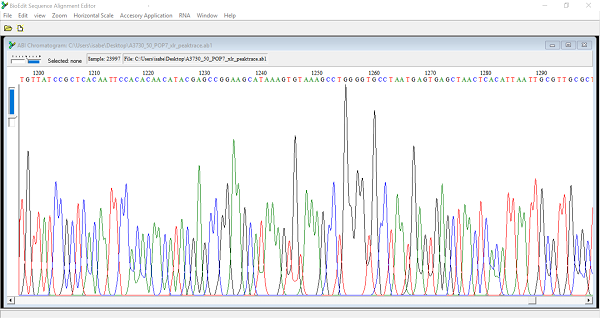

When expert consensus exists on a subject being covered, Merkley recommends journalists include that in their stories.

Without that context, audiences might not know when an expert’s statement is considered extreme or contradicts consensus. Reporters often quote researchers without explaining whether their statements represent the views of researchers in the same field as a whole, Merkley says. WHAT TO AVOID: Citing individual researchers without noting how their views on a given topic compare with those of other scholars in the field.
#Getting consensus in bioedit how to#
Here’s what to avoid when covering scientific consensus - and how to get it right. Below, Merkley joins two other researchers - Teresa Myers, an assistant research professor at George Mason University’s Center for Climate Change Communication, and Sara Shipley Hiles, an associate professor at the Missouri School of Journalism and veteran science journalist - to offer advice on how journalists can strengthen their work. “A lot of people only really get information about these issues through the news media, so when the opportunity arises to provide this contextual information, I believe it’s very important to do so,” he says. Merkley urges journalists to make a habit of pointing out when there’s broad expert agreement on the policy questions they’re covering. The resulting paper, “ Are Experts (News)Worthy? Balance, Conflict, and Mass Media Coverage of Expert Consensus,” was published last year in Political Communication.
#Getting consensus in bioedit tv#
news coverage of 10 science and economic policy issues on which there’s clear consensus, he discovered “information related to expert consensus is contained in an extremely small portion of a news consumer’s diet on these issues.” He examined nearly 300,000 news articles and transcripts from six national and local newspapers, three cable news networks, three TV news networks and the Associated Press newswire service going back to 1980. His research finds that news outlets do a poor job informing the public about the scientific consensus on hot-button issues such as vaccination, nuclear power and genetically modified foods - even when it’s directly relevant to their coverage. When a reporter interviews a source whose views match the collective position, it’s a strong signal the information is trustworthy, explains Eric Merkley, an assistant professor of political science at the University of Toronto who studies expert consensus. Knowing what experts think about an issue can help the public make informed decisions about it. Surveys of physicians and medical researchers “have repeatedly indicated that over 90% of doctors agree that adults and children should receive all recommended vaccines,” according to a paper published in 2016 in the medical journal BMJ Evidence-Based Medicine. For example, the overwhelming majority of doctors say childhood vaccines are safe. Scientific consensus is the collective position scientists in a given field have taken, based on their interpretation of the available evidence.

This tip sheet features practical advice from three researchers with expertise on those topics. If you’re unsure what scientific consensus is, don’t understand its significance or have no idea how to gauge it, keep reading. When reporting on controversial policy topics such as vaccine safety and climate change, journalists can look to scientific consensus to bolster their coverage and battle misinformation.


 0 kommentar(er)
0 kommentar(er)
